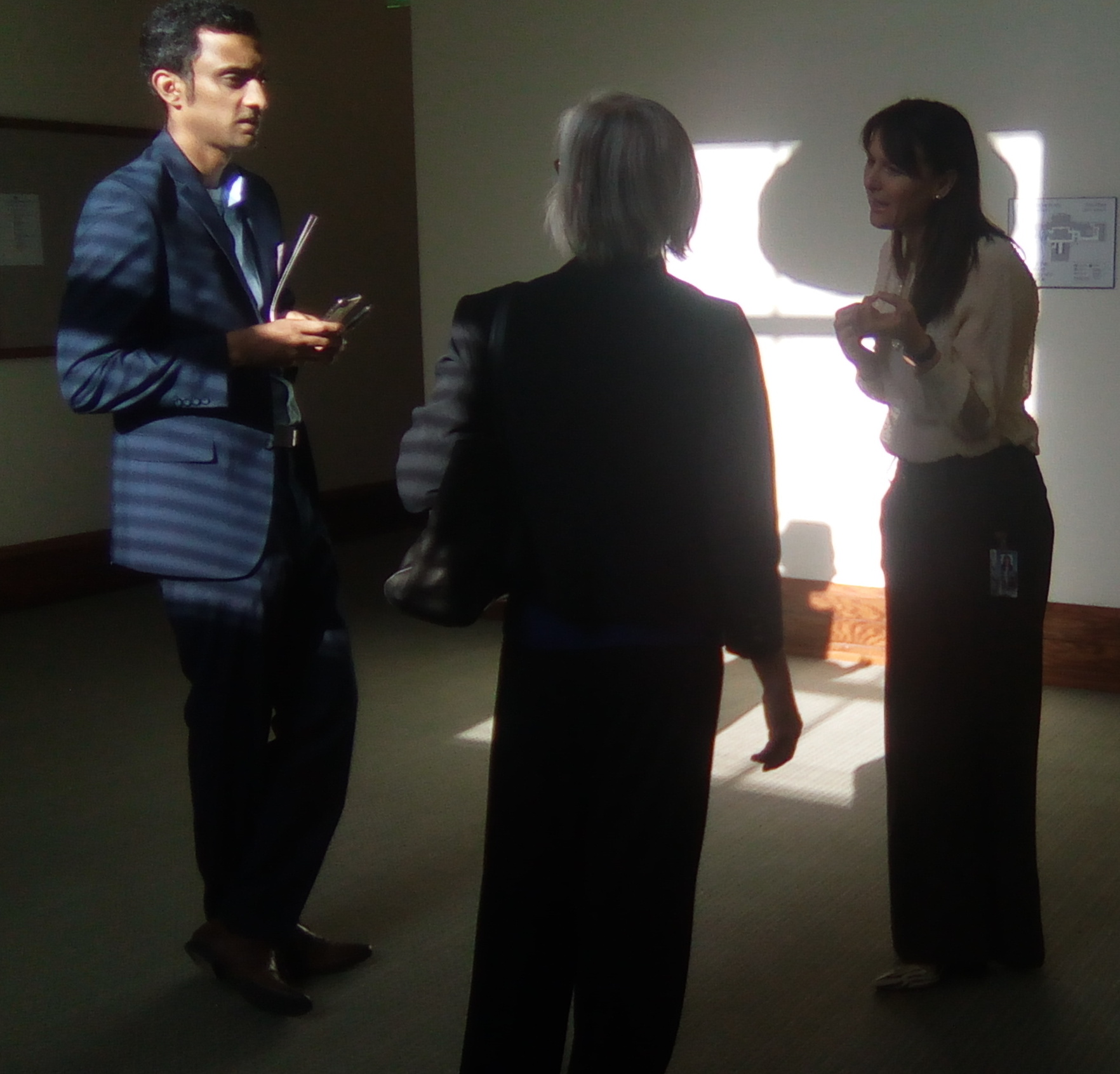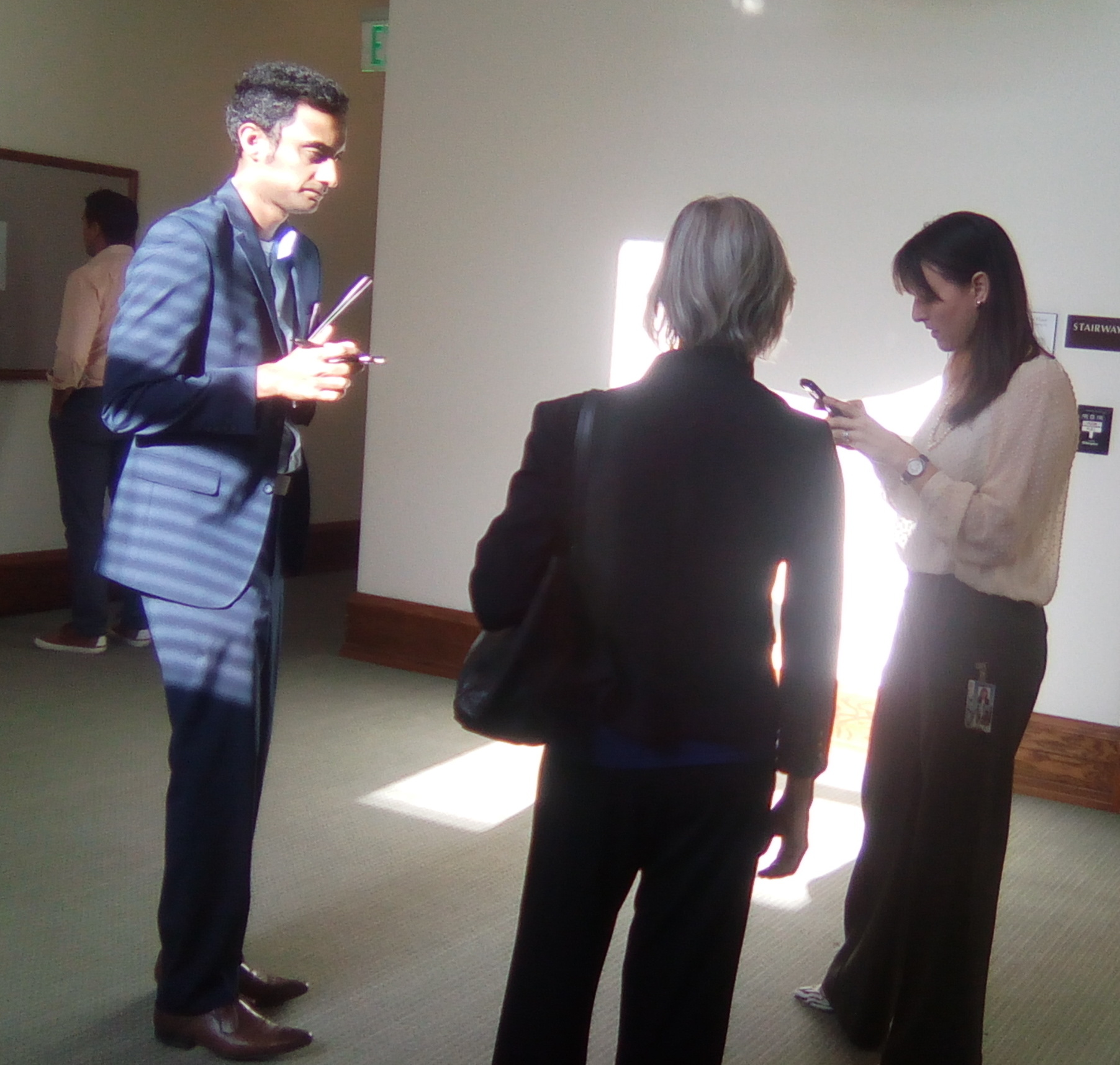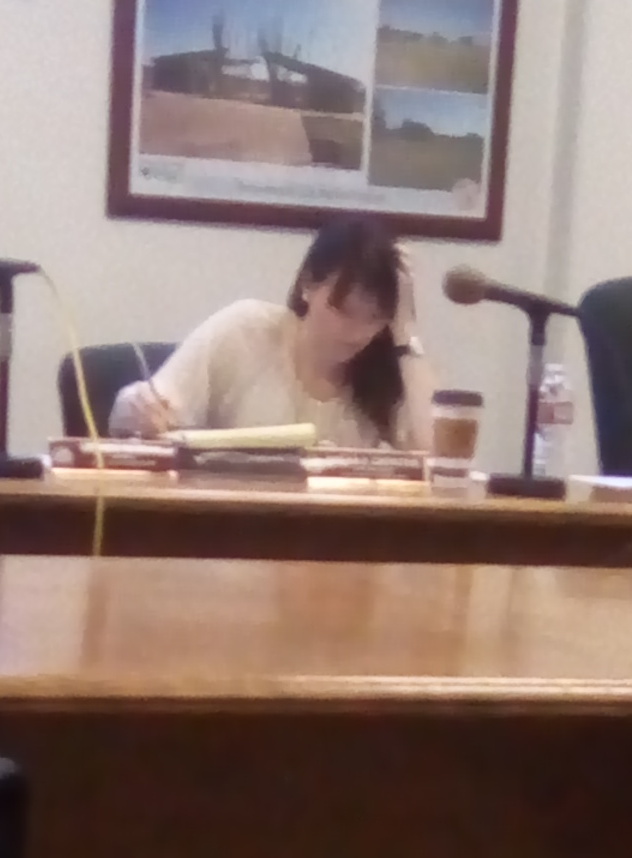
In August the Ethics Commission continued the multiyear discussion about revising the Municipal Lobbying Ordinance. The next stage in the process was three interested persons’ meetings held in September, and then on to more discussion at yesterday’s Ethics Commission meeting. The meeting was essentially interminable,1 and I recorded the whole lobbying discussion. You can watch it either on Archive.Org or on YouTube:
• Part I • Part II • Part III • Part IV •.

There, I was lucky enough to witness lobbyists2 Shyaam Subramanian of Bolder Advocacy and Nancy Berlin of CalNonprofits engaged in an intense conversation with Ethics Commissioner Serena Z. Oberstein about proposed revisions to the MLO involving nonprofit corporations, whose interests both of them are compensated to represent to the City. At one point she even thanked them for giving her “language,” presumably having to do with their preferred outcome in the upcoming meeting, and went so far as to take notes on it in her phone!

This kind of discussion between lobbyists3 and Commissioners, that takes place in private outside regular meetings, is known as an ex parte communication. It seems that such communication is generally not forbidden and that there’s no requirement whatsoever that Ethics Commissioners disclose their ex parte communications. Some City Commissions, notably the Board of Harbor Commissioners have decided to disclose ex parte communications voluntarily. Most, however, including the Ethics Commission itself, have not. In 2011 the Ethics Commission policy staff made a series of recommendations which included a proposed requirement that all City commissioners follow the lead of the Harbor Commission and disclose such communications orally before each meeting.4
The proposal died in committee in 2011, and consequently nothing about the matter appears in the Municipal Governmental Ethics Ordinance, for instance. It’s mildly interesting, but also upsetting, that David Ryu and Jose Huizar seem to have resurrected the matter in 2016 with this motion, which is presently, at least according to its Council File CF 07-3294-S2, also dying in committee.
However, required to do so or not, it’s certainly a shame that the Ethics Commission, of all City commissions, hasn’t adopted a voluntary requirement that its commissioners disclose ex parte communications. Given the number of times per meeting that these Commissioners, honestly or not, assert that they’re committed to transparency and so on, it would seem as if such a rule would be an easy and obvious thing to have. Perhaps I’ll ask them to implement something, and maybe you’ll join me in asking? Stay tuned for details!
All images are ©2017 MichaelKohlhaas.Org.
- Which is in no way a bad thing.
- Not registered-in-the-City-of-LA lobbyists, but lobbyists nonetheless.
- Or anyone, really.
- I’m glossing over an important but fairly technical distinction between adjudicative matters and legislative (or quasi-legislative) matters. The first has to do with a Commission acting as a finder of fact in a specific case and the second with setting policy. Ex parte communications in the first kind of case are already closely regulated by state law. Everything we’re talking about here is the second kind, which isn’t regulated strongly by anyone.
